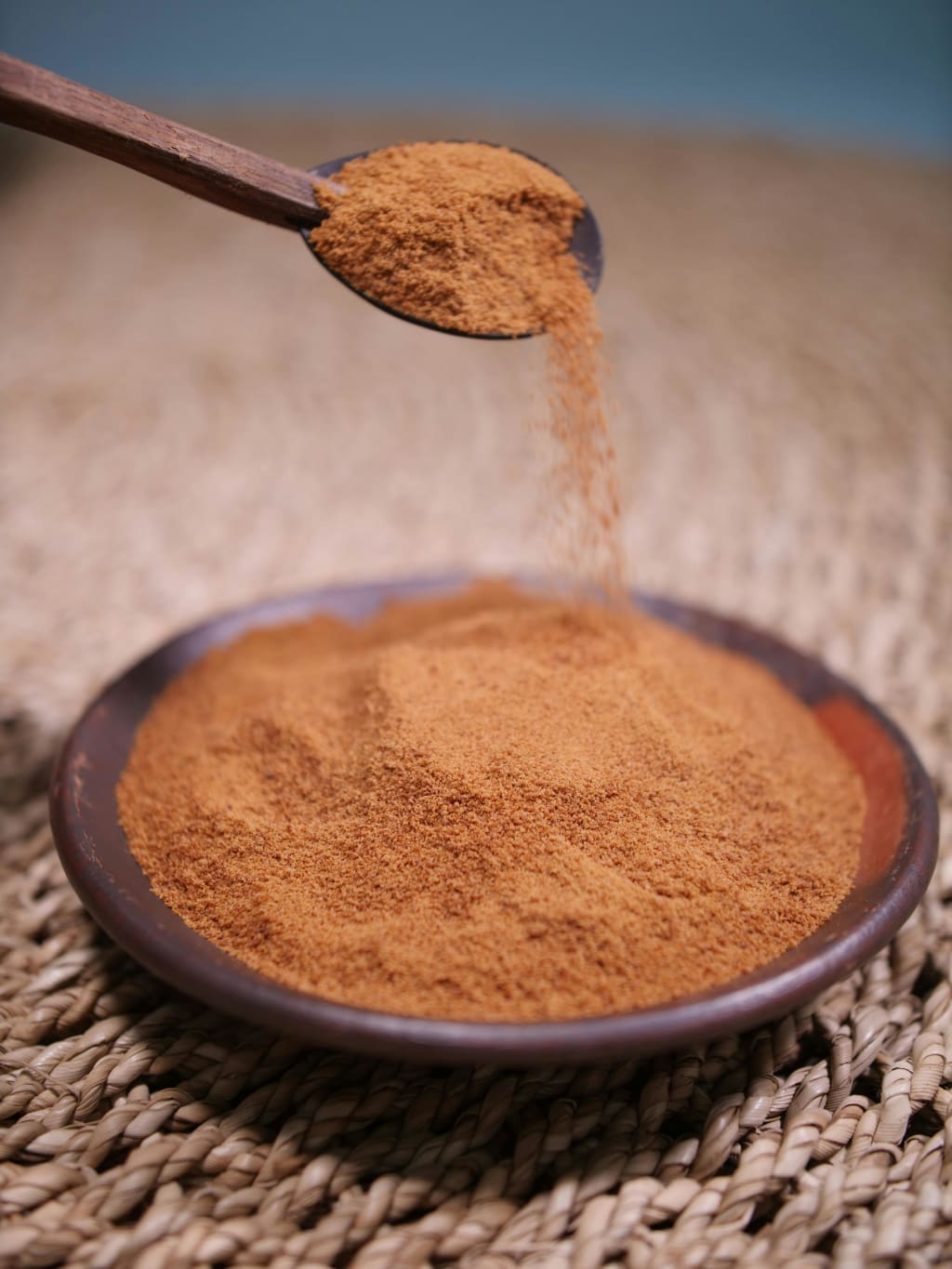Cinnamon:
A Closer Look at the Role in Ancient Scripture

According to the Encyclopedia of the Bible (online version), cinnamon is mentioned in Exodus 30:23, Proverbs 7:17, and Song of Solomon 4:1-2, and the word "kinamomon" appears in Revelation 18:13. It is Cinnanomum zeylanicum which grows about 30 feet high and bears small, white flowers on spreading branched. The oil is distilled from the bark after it has been softened by soaking in seawater. The Hebrews in the olden days thought it was a glorious scent. Cinnamon grows only in India on the Malabar coast in Ceylon and China.
Cinnamon is mentioned as a spice in Proverbs 7:17, Song of Solomon 4:14, and Revelations 18:13 whereas in Exodus 30:23 it is an ingredient in the sacred oil.
Cinnamon is mentioned four times in the Bible. Let's explore each scripture and learn what it means.
In Exodus 30:23-30, cinnamon is a specific ingredient for Moses to create an anointing oil. The purpose of the anointing oil was to consecrate holy objects in the Tabernacle to make them holy. Exodus 30:22-30 reads, "Moreover the Lord spoke to Moses, saying: “Also take for yourself quality spices—five hundred shekels of liquid myrrh, half as much sweet-smelling cinnamon (two hundred and fifty shekels), two hundred and fifty shekels of sweet-smelling cane, five hundred shekels of cassia, according to the shekel of the sanctuary, and a hint of olive oil. And you shall make from these a holy anointing oil, an ointment compounded according to the art of the perfumer. It shall be a holy anointing oil. With it you shall anoint the tabernacle of meeting and the ark of the Testimony; the table and all its utensils, the lampstand and its utensils, and the altar of incense; the altar of burnt offering with all its utensils, and the laver and its base. You shall consecrate them, that they may be most holy; whatever touches them must be holy. And you shall anoint Aaron and his sons, and consecrate them, that they may minister to Me as priests." (NKJV). God instructs Moses on how to make and use the anointing oil. The oil was to consecrate the priests (Exodus 30:26-30). This oil was to be used throughout their generations and prepared by Moses. As we can see, God had specific instructions on how the oil was to be prepared and by whom. God expected his instructions to be carried out. He expects his Word to be obeyed even today.
King Solomon in Proverbs 7:17, tells a story of a young man who an adulterous woman beguiled. She lures him to sin with tapestries and Egyptian linen on her bed covered with "I have perfumed my bed with myrrh, aloes, and cinnamon" (Proverbs 7:17, NKJV) to make it smell nice. Most likely these spices were expensive and emphasized that she was rich. The young man succumbed to her lures and sinned rather than saying no to her temptation. He didn't think of the consequences of this sin - earthly or eternal.
In Revelations 18:13 the passage reads "And cinnamon, and odours, and ointments, and frankincense, and wine, and oil, and fine flour, and wheat, and beasts, and sheep, and horses, and chariots, and slaves, and souls of men" (KJV). This verse talks about the downfall of Babylon due to corruption and worldly power. The passage mentions the things that were traded in Babylon and the wealth that was associated with Babylon which is a contrast to its destruction.
In Song of Solomon 4:14, cinnamon is mentioned in this love poem between the writer and his beloved. " Spikenard and saffron; calamus and cinnamon, with all trees of frankincense; myrrh and aloes, with all the chief spices:" KJV). This verse symbolizes the delight of their love.
Conclusion
In summary, cinnamon was a valuable commodity used for various reasons. In Exodus 30:23, it was an anointing oil for the Tabernacle and holy objects, in Proverbs 7:17, it was a perfume for the bed, in Song of Solomon, it represents love and devotion and in Revelations 18:13, it was for the mourning of the merchants in Babylon. Even though it is mentioned 4 times in the Bible it still holds some significance. God has a reason for adding it to the Bible.
About the Creator
Lisa Briskey
I love to write, crochet, and sew. I am a grandmother of a two-year-old granddaughter.
Follow me on Medium: https://medium.com/@lisabriskey5
And support me on my Ko-fi: https://ko-fi.com/lisaj or https://ko-fi.com/lisabriskey






Comments
There are no comments for this story
Be the first to respond and start the conversation.